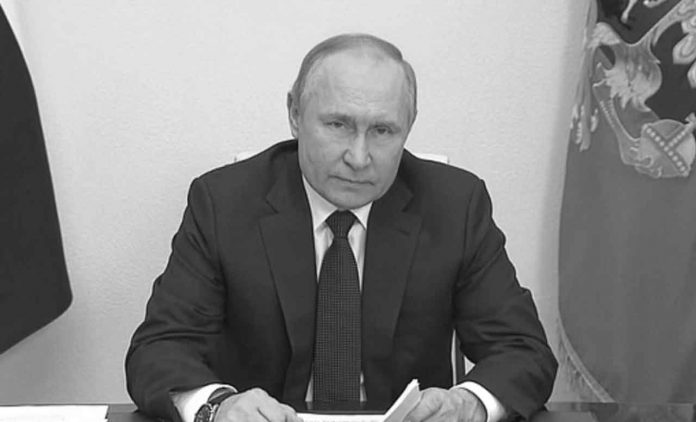The world can no longer afford to swim with the green tide
By Simon Bennett
In 2008, Britain’s parliamentarians passed the Climate Change Act (CCA), which committed Britain to achieving Net Zero by 2050. As The Economist put it, CCA “would mark the end of Britain’s contribution to global warming, notwithstanding ‘exported’ emissions resulting from products made abroad”.
Like much legislation, the CCA was a product of its time. Europe was at peace. Attention was focused on the dramatically named climate crisis. Politicians were swimming with the green tide. Some, myself included, warned against tying the country to legally binding emissions targets on the basis that such targets would limit politicians’ freedom to respond speedily and decisively to new threats, such as a world financial crisis, global pandemic or regional conflict. The advice fell on deaf ears.
Russia’s war with Ukraine has changed the political landscape dramatically. In a tightly coupled global economy, the shock-waves created by the war have reverberated through every continent. Energy prices have soared. Supplies of foodstuffs such as wheat, and fuels such as oil and natural gas, are threatened. These are commodities the world cannot live without. Having woven themselves into the global economy – indeed, surrendered to it – many countries are now seeking to disengage and become more self-reliant.
To this end, in December 2022, Britain’s Conservative government took on the country’s increasingly fundamentalist green lobby and announced the sinking of a new coal mine to produce coking coal for Britain’s strategically important steel industry. British steel plants have been importing coal from the U.S. and, until recently, Russia. The new mine, situated close to the town of Whitehaven in Cumbria, will support 500 jobs directly and 1,500 indirectly. The benefits of creating an indigenous supply of coking coal include:
- job creation in a depressed region of Britain, in accordance with the government’s levelling-up agenda to narrow the country’s regional inequality
- use of a less polluting mode of transport (rail) to deliver coking coal to UK steel plants
- making the UK less reliant on foreign supplies of coking coal from, for example, the U.S. and Australia. Sea lanes are vulnerable in times of war. Churchill’s biggest concern during the Second World War was that Britain would lose the Battle of the Atlantic. Deprived of food and raw materials such as crude oil, the country would have struggled to survive.
Predictably, the government’s strategically savvy move has drawn fire from the green lobby. The country’s sole Green Party MP, Caroline Lucas, accused the government of supporting a “climate-busting, backward-looking, stranded asset coal mine” and of committing a “climate crime against humanity” (quoted in the Financial Times). Her response merits analysis:
‘Climate busting’: transporting coal from the north of England to, say, the giant Port Talbot steelworks in South Wales by rail is more fuel-efficient and less polluting than transporting coal to Port Talbot by sea from the U.S. or Australia.
‘Backward-looking’: the new mine takes account of the risks to Britain’s supplies of raw materials created by the war in Ukraine. Currently a proxy war, the Russia-Ukraine War could easily morph into a hot war between NATO and Russia. Rather than backward-looking, the government’s policy is forward-looking. Unlike the CCA, it is of its time.
‘Stranded asset’: a curious descriptor, given that the mine, far from being stranded, will be networked into Britain’s rail system and will support roughly 2,000 jobs in a chronically depressed region of Britain. Surely a better description of the Whitehaven mine would be Beacon of Hope?
‘Climate crime’: how does creating a shorter, more reliable and less polluting supply chain for an essential raw material – coking coal for making steel – constitute a climate crime? Britain will always need steel, the production of which requires coking coal.
Friends of the Earth’s Dr. Ruth Balogh said: “This short-sighted decision is bad news for the climate and the region’s long-term wellbeing …. West Cumbria needs sustainable green jobs for the future – not a dirty coal mine” (quoted in the Financial Times). Given that the government’s decision is partly a response to the Russia-Ukraine War, surely it is better described as far-sighted. Given that the mine will support about 2,000 jobs, surely it is better described as good news for the region’s long-term wellbeing.
Green rhetoric is frequently emotive. Sometimes it is hyperbolic. Unfortunately for a bemused public, greens’ hyperbole goes largely unchallenged by the media. Consider how the emotive claim that the world is in ‘climate crisis’ has been normalized by the media. Green groups are adept at manipulating the Fourth Estate.
Regarding the threat to energy security posed by Putin’s Russia, I would argue that Britain needs to:
- retain its existing coal-burning power stations
- build new ones (engineered to reduce emissions)
- sink new mines to supply them with coal
- repeal the CCA.
Safeguarding citizens in the here and now is a government’s primary duty. War heightens the senses and clarifies thinking. It affirms what is important, and what is not.
Dr. Simon Bennett directs the Civil Safety and Security Unit at the University of Leicester. He’s interested in the organizational, social, economic and political origins of risk. He has worked with the Royal Air Force and U.K. National Police Air Service on human-factors issues. His latest book, Safety in Aviation and Astronautics: A Socio-technical Approach, was published by Routledge in 2022.
The views, opinions and positions expressed by all columnists and contributors are the author’s alone. They do not inherently or expressly reflect the views, opinions and/or positions of NetNewsLedger.





